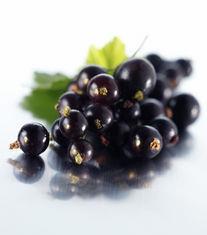
A preliminary study by New Zealand company Plant & Food Research shows that natural chemicals from blackcurrants may help breathing in some types of asthma.
Researchers found a compound from a New Zealand blackcurrant may reduce lung inflammation, with a multi-action assault on allergy-induced asthma.
The compound was found in laboratory experiments to enhance the natural defence mechanisms in lung tissue by both suppressing inflammation-causing reactions and minimising inflammation, reports the Molecular Nutrition and Food Research journal.
Fruit consumption has been shown to reduce symptoms in allergy-induced asthma but this research is the first to give insights into the mechanism by which this may occur.
The researchers identified that the component, epigallocatechin, reduced inflammation in lung tissue. Epigallocatechin is a known antioxidant and a major component of proanthocyanidins found in blackcurrants.
In the Plant & Food Research study, led by Dr Roger Hurst, cells from lung tissue were used to test the effects on the immune system of a proanthocyanidin-rich extract, from blackcurrant cultivars grown in New Zealand.
Hurst said: “To find natural compounds that potentially reduce lung inflammation and complement the body’s own immune response is an exciting breakthrough. Should we discover more about how this works we may eventually develop foods containing these compounds that could provide more natural alternatives to assist conventional drug treatments for asthma and even other allergic reactions.”
The study is part of Plant & Food Research’s Food Innovation science platform, which focuses on discovering the natural goodness in fruit, vegetables, grains and seafood and using this knowledge to develop fresh whole foods, ingredients and food concepts.
Jo Hilditch, chairman of Blackcurrant Foundation, said: “Whilst we have long understood the outstanding health benefits associated with blackcurrants, we are extremely excited by this ground breaking research indicating the potential for a number of additional attributes of which we were not already familiar. With asthma having long been treated by prescriptive medicine, we are delighted at the possible discovery of a natural remedy.”



